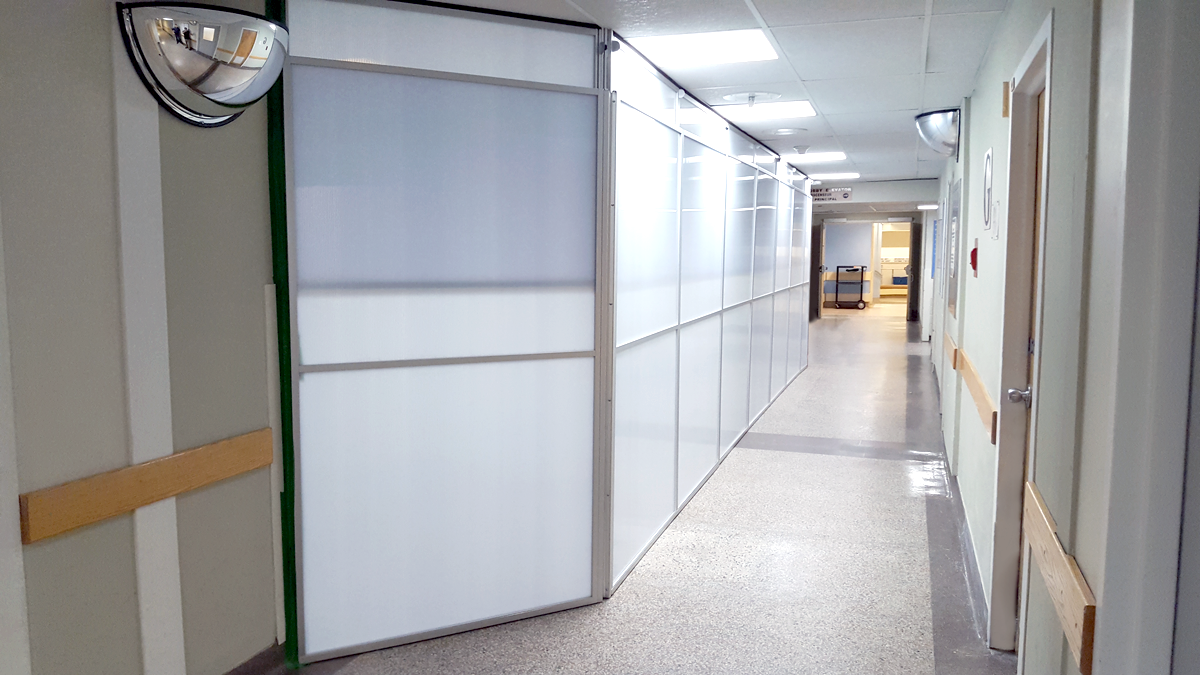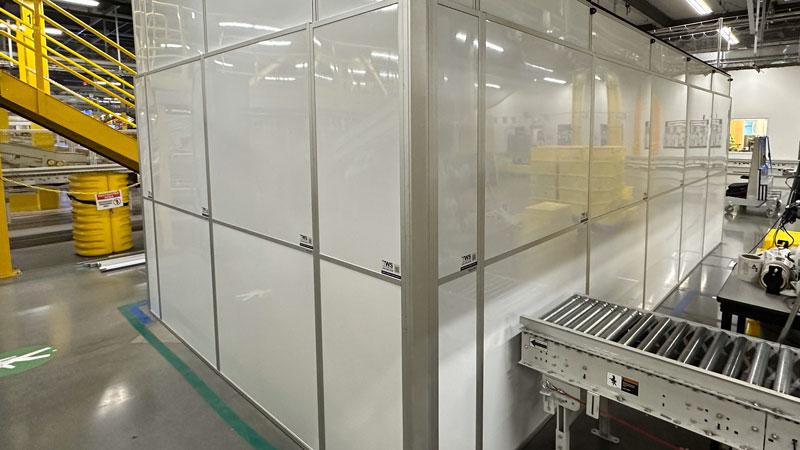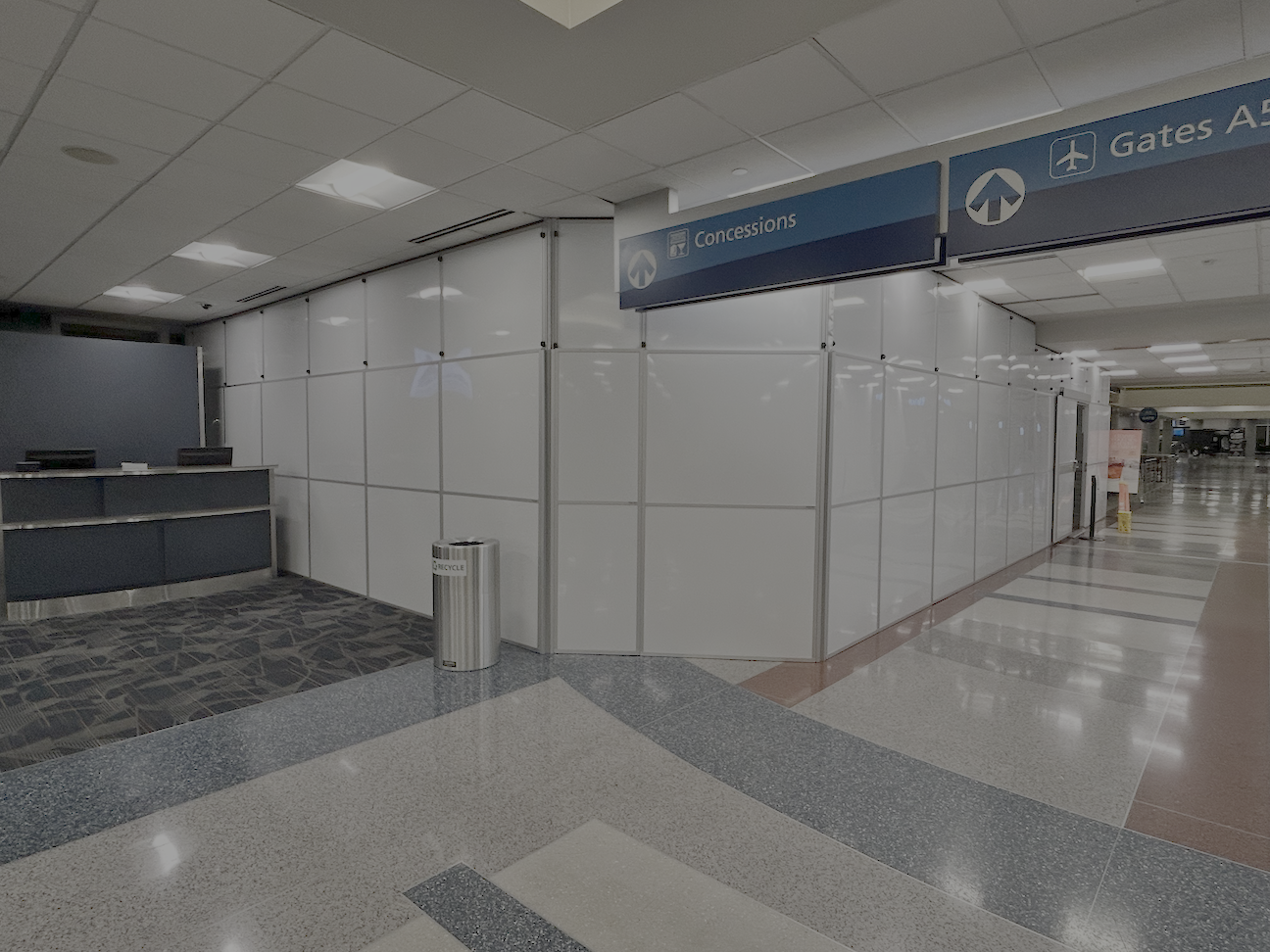In the ever-evolving landscape of construction and healthcare industries, where precision and safety are paramount, modular walls have become indispensable. These versatile structures offer a range of benefits, from flexibility in design to rapid installation. However, ensuring compliance with industry standards is crucial to guarantee these modular wall systems’ structural integrity and safety.
In this blog, we delve into the critical distinctions between two prominent sets of standards: ICRA (Infection Control Risk Assessment) and ISO (International Organization for Standardization) classifications. For modular wall companies, comprehending these standards is vital to delivering solutions that meet clients’ diverse needs across various sectors.
ICRA: Safeguarding Healthcare Environments
The healthcare sector demands unique considerations regarding construction and renovation projects. Developed by the American Institute of Architects (AIA), the ICRA guidelines are designed to address the challenges posed by construction activities within healthcare facilities.
ICRA classifications provide a systematic approach to assessing and managing infection risks during construction or renovation projects in healthcare environments. These classifications are typically expressed in four levels:
- ICRA Class I: This classification pertains to construction activities that pose minimal risk of infection to patients, staff, and visitors. It often involves work in areas not connected to patient care or where the general public has limited access.
- ICRA Class II: In this category, the risk of infection is slightly higher, involving work in areas adjacent to patient care zones. However, the construction activities should maintain the critical functions of the healthcare facility.
- ICRA Class III: This classification addresses construction activities that may disrupt the critical functions of a healthcare facility. It involves work within patient care areas where the risk of infection is moderate.
- ICRA Class IV: The highest risk classification, Class IV, involves construction activities that significantly disrupt the critical functions of a healthcare facility, posing an increased risk of infection to patients. Examples include extensive renovation or construction within active operating rooms.
For a modular wall company catering to the healthcare sector, understanding and adhering to ICRA classifications is imperative. Contractors and facilities managers can use a checklist to ensure that construction projects are executed with minimal risk to patients and staff while maintaining the functionality of healthcare facilities.
ISO: Establishing Universal Standards
In contrast to ICRA classifications specific to the healthcare industry, ISO standards provide a universal framework for quality, safety, and efficiency across various sectors, including construction. The International Organization for Standardization (ISO) develops and publishes these standards to facilitate international trade and ensure that products and services meet the highest quality and safety benchmarks.
For modular wall companies, ISO classifications, specifically ISO 14644 and ISO 14698, are particularly relevant. ISO 14644 focuses on cleanroom environments, providing guidelines for the maximum allowable levels of airborne particles in controlled environments. ISO 14698, on the other hand, addresses biocontamination control in cleanrooms, emphasizing microbial contamination.
- ISO 14644: This standard classifies cleanrooms based on the concentration of airborne particles. It categorizes cleanrooms into various classes, from ISO Class 1 (the most stringent) to ISO Class 9 (the least stringent). The classification is determined by the maximum allowable particle count per cubic meter at specified particle sizes.
- ISO 14698: This standard focuses on biocontamination control within cleanrooms. It provides a systematic approach to assess and manage the risks associated with microbial contamination. Like ICRA classifications, ISO 14698 recognizes different biocontamination control levels, emphasizing the importance of preventing and controlling the presence of microorganisms in cleanroom environments.
Integration of ICRA and ISO Standards in Modular Wall Solutions
To provide comprehensive solutions, modular wall companies operating in healthcare environments must navigate ICRA and ISO standards seamlessly. This integration ensures that the construction or renovation projects comply with infection control measures and meet global quality and safety standards.
- Design Considerations: When developing modular wall systems for healthcare applications, designers must consider ICRA classifications to determine the infection risk associated with construction activities. Simultaneously, adherence to ISO standards, particularly ISO 14644, guarantees the cleanliness and quality of the cleanroom environment.
- Material Selection: Modular wall companies must choose materials that align with ICRA and ISO requirements. Materials should meet the structural and design criteria and facilitate easy cleaning and maintenance to minimize the risk of infection.
- Installation Processes: Installing modular wall systems in healthcare settings should be executed with meticulous attention to infection control protocols outlined in ICRA classifications. At the same time, adherence to ISO standards ensures that the cleanroom environment remains uncontaminated during and after installation.
- Validation and Testing: Regular validation and testing are crucial to maintaining compliance with ICRA and ISO standards. Modular wall systems should undergo routine assessments to verify their effectiveness in controlling infection risks and maintaining cleanroom conditions.
Conclusion
In the dynamic landscape of construction and healthcare, modular wall companies face the dual challenge of meeting industry-specific requirements and adhering to global standards. Understanding the nuances of ICRA and ISO classifications is paramount for delivering solutions that prioritize safety, cleanliness, and efficiency.
By integrating these standards into the design, material selection, installation processes, and ongoing validation of modular wall systems, companies can confidently offer solutions that meet the unique demands of healthcare environments and align with international benchmarks for quality and safety. In doing so, modular wall companies position themselves as reliable partners in constructing spaces that prioritize the well-being of patients, staff, and the broader community.



